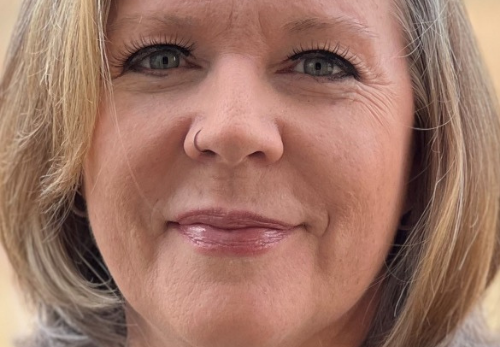Welcome to another edition of IntelePeer’s Tech Tuesday series. This week Chaney Caldwell Ward, Customer Success Manager, shares her unique journey into technology, hopes for AI during her lifetime, and how she broke into the technology field.
1. What first got you interested in working in technology?
I was a non-traditional student who put myself through school. Initially in college, I took classes in technology even while pursuing a Liberal Arts degree. I began programming in early database software.
I was able to apply those skills in my work life, since work and school were happening at the same time. I found that I was good at understanding how networks operate and managing them – I was hooked.
2. What AI or machine learning capabilities are you most looking forward to?
I would love to see self-driving cars in my lifetime. I feel the roads would be much safer if all drivers and cars followed the same rules. If introduced carefully and correctly, I believe this type of transportation could go a long way toward creating safer roadways. Having offspring who drive, that advancement would make me very happy.
Having affordable, clean, and more local energy sources is also appealing. If AI could impact that field as well, the adoption of it could be to our global advantage.
3. What was the most challenging aspect of your career and how did you overcome it?
Breaking into technology as a woman in the mid 1990’s was challenging for me because it was still very much a man’s world. I had to be better than my male colleagues to be taken seriously and given a chance. There was a lot of surprise to see a woman succeed in a technical area during my early career. Once I earned respect through my work, it was much easier to be taken seriously and given opportunities to excel and succeed.
Later, having a family and raising children while managing that career was an equal challenge. I never wanted to leave my career to nurture my children, but I also wasn’t willing to give up being there for them – especially in those early years. I was able to take full leave, negotiate reduced hours, and work from home upon returning to work. Work-life balance was not something I was willing to sacrifice, and the companies I worked for were willing to flex my schedule to my needs. Meeting both the demands of career and family is a huge challenge and takes commitment and endurance.
4. Any advice for women who want to join the tech industry?
The same advice I would give any woman entering the workplace. Make others see you for who you are and require that you be taken seriously through your work. Show them what you have to offer, and you will succeed. If you find you are in a place that doesn’t allow that, seriously consider a different circumstance. We make the world we want to live in by demanding what we need of the world we have.
5. What advice would you give your younger self who is just starting in the workforce?
I would tell myself not to worry so much about choosing a college major or career path right off the bat. Some people just know what they want to do and that they need a certain degree to do that. But most of us really don’t. That was me. My school-work life journey took me where I was meant to go. I didn’t trust it and second guessed it so many times.
Once I learned to trust the process of life and to follow my own path, it took me to all the right places. There are important decisions and leaps of faith to make along the way, for sure. But if I could go back and tell myself anything, it would be to not stress out about having no direction toward a college major or career at 19-22 years of age. That never helped me get anywhere faster. The quicker path for those of us who lack direction early on is working hard and being willing to follow your nose.
Bonus: Who is your tech role model?
My tech role models have always been my co-workers. I have had the great pleasure of working with some of the most amazing people in telecommunications over the years. From project managers to developers to technicians to engineers, there are a lot of people who have mentored and impacted me for the better. They are not famous, and nobody would know their names. But I have found that the day-to-day people with whom we work are the ones who influence us most.
